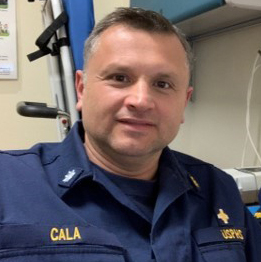May highlights the pivotal role of speech-language pathologists and audiologists in fostering communication health and proficient swallowing skills. National Speech-Language-Hearing Month extends beyond celebration; it underscores equitable access to quality care, particularly within communities like the Navajo Nation, where linguistic and cultural dynamics intersect with health care disparities.
As a speech language pathologist officer within the U.S. Public Health Service Commissioned Corps and the Indian Health Service on the Navajo Nation, I've experienced firsthand the challenges and triumphs of delivering speech, language, and swallowing services. Our mission transcends diagnosis and treatment; it embraces cultural sensitivity, community engagement, and advocacy for equitable health care access. The Navajo community's rich linguistic diversity presents unique challenges. Despite many professionals being proficient solely in English, we strive to immerse ourselves in Navajo culture and language, facilitating effective communication and comprehension.
Geographical barriers and limited resources also hinder access to speech and hearing services. IHS has implemented innovative solutions like telehealth services within physical rehabilitation departments, but sustained advocacy and investment are necessary, especially for vulnerable populations like our elders and preschoolers.
National Speech-Language-Hearing Month amplifies awareness about communication disorders and early intervention. Deeply ingrained cultural beliefs can deter individuals from seeking assistance, underscoring the need for community engagement and education to dispel misconceptions and encourage support-seeking. Collaboration is crucial in addressing health care needs. As a speech language pathologist, I collaborate with interdisciplinary teams to provide comprehensive care. By leveraging expertise and resources, we address holistic patient needs. Our outreach initiatives empower individuals and families to embrace healthy communication practices for lifelong wellness.
National Speech-Language-Hearing Month honors our Native heritage by fostering a culturally responsive health care approach. As health care professionals, we strengthen partnerships within the community. Advancing communication health equity requires addressing systemic barriers, expanding resource accessibility, and prioritizing linguistic and cultural diversity in health care policy.
In conclusion, being fully immersed in the Navajo culture, I have established rapport with my patients, their families, and the community. They expect my services to habilitate or rehabilitate them through quality continuity of care for themselves, their children, and their elders. This approach has been a great gift. My skills grew in ways I could not imagine. I have fallen in love with my profession and discovered that I can impact the lives of my patients, their loved ones, and the nation in phenomenal ways.



